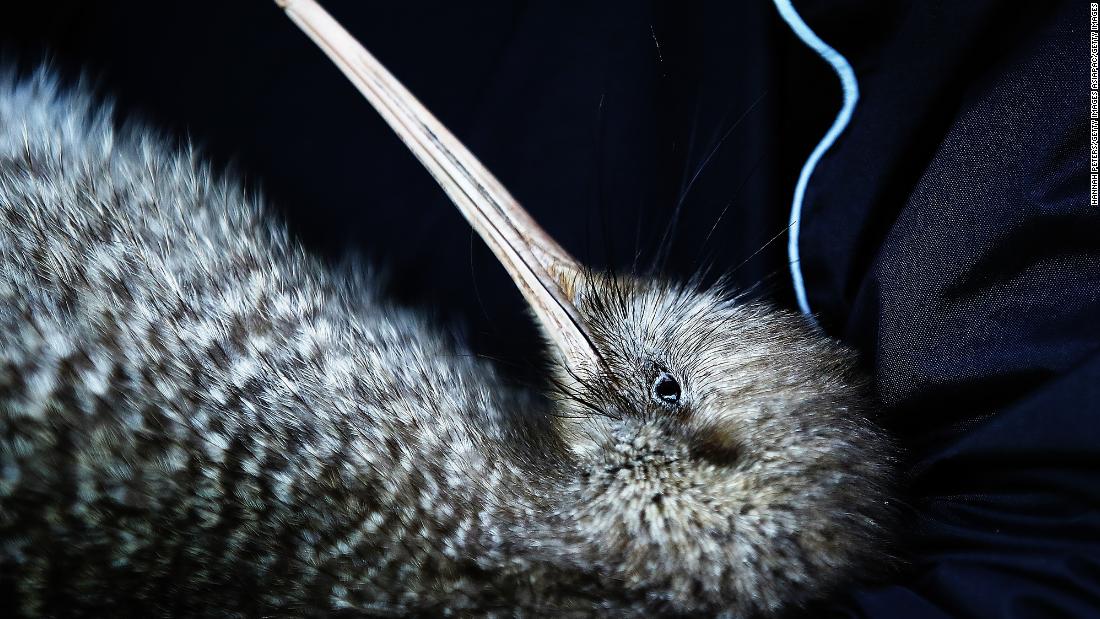
More than 1,500 fraudulent votes were cast in the early hours of Monday in the country's annual bird election, briefly pushing the Little-Spotted Kiwi to the top of the leaderboard, organizers and environmental organization Forest & Bird announced Tuesday.
Those votes -- which were discovered by the election's official scrutineers -- have since been removed. According to election spokesperson Laura Keown, the votes were cast using fake email addresses that were all traced back to the same IP address in Auckland, New Zealand's most populous city.
"It's lucky we spotted this little Kiwi trying to sneak in an extra 1,500 votes under the cover of darkness," Keown said in a statement. "But they'll have to play by the rules like all of the other birds to win the competition."
New Zealand's Bird of the Year competition has been running since 2005, and was established by Forest and Bird as a way to encourage New Zealanders to learn about the country's native birds -- and inspire them to help protect the country's wildlife.
Already 35,000 votes have been cast in this year's election, which allowed voters to rank up to five birds of their choice. Each person can cast only one vote per email address, and international votes are also counted.
Voting opened earlier this month and closes this weekend. This election comes only weeks after the country's general election, which saw Prime Minister Jacinda Ardern reelected in a landslide.
Although the Bird of the Year vote is ostensibly an effort to raise awareness about New Zealand's native birds, many of which are struggling for survival, it has a history of turning heated.
Human political leaders and interest groups often back the feathered candidate of their choice -- this year, sex toy retailer Adult Toy Megastore endorsed the Hihi, which it said practices "consensual polyamory."
There are dozens of candidates beyond the Little Spotted Kiwi, which is extinct on mainland New Zealand, although around 1,200 live on Kapiti Island, a sanctuary off the coast of the country's capital, Wellington. Others include the Morepork or Ruru -- described by Forest and Bird as "somewhat of an enigma" -- and Piwauwau or Rock Wren, which demonstrates "true mountain bravery." And there's also the incumbent Hoiho -- also known as the Yellow-Eyed Penguin -- which is fighting for reelection (there are no term limits).
According to Keown, the current frontrunner is the Antipodean Albatross or Toroa, a seabird that uses an elaborate years-long dancing and singing courtship ritual to find a mate that it often stays with until one of the pairing dies.
Although the stakes are lower than a traditional political election, this year's vote isn't the first to turn dirty.
In 2018, a person from Perth, a city in New Zealand's neighboring Australia, voted for the Shag more than 300 times before they were caught by election organizers.
And in 2015, two teenagers tried to rig the vote in favor of the Kokako, an endangered songbird, according to national broadcaster Radio New Zealand.
But, insists Keown, voter fraud is "not the Kiwi way."
"As Aotearoa's national emblem, Little-Spotted Kiwi represents New Zealanders' values of democracy, fairness, equality, and honesty," she said. "We don't condone the illegal votes cast towards our cute little bird."
"bird" - Google News
November 11, 2020 at 11:51AM
https://ift.tt/2GO7yFu
New Zealand discovers 1,500 fraudulent votes ... in an election on birds - CNN
"bird" - Google News
https://ift.tt/2s1zYEq
https://ift.tt/3dbExxU
Bagikan Berita Ini














0 Response to "New Zealand discovers 1,500 fraudulent votes ... in an election on birds - CNN"
Post a Comment